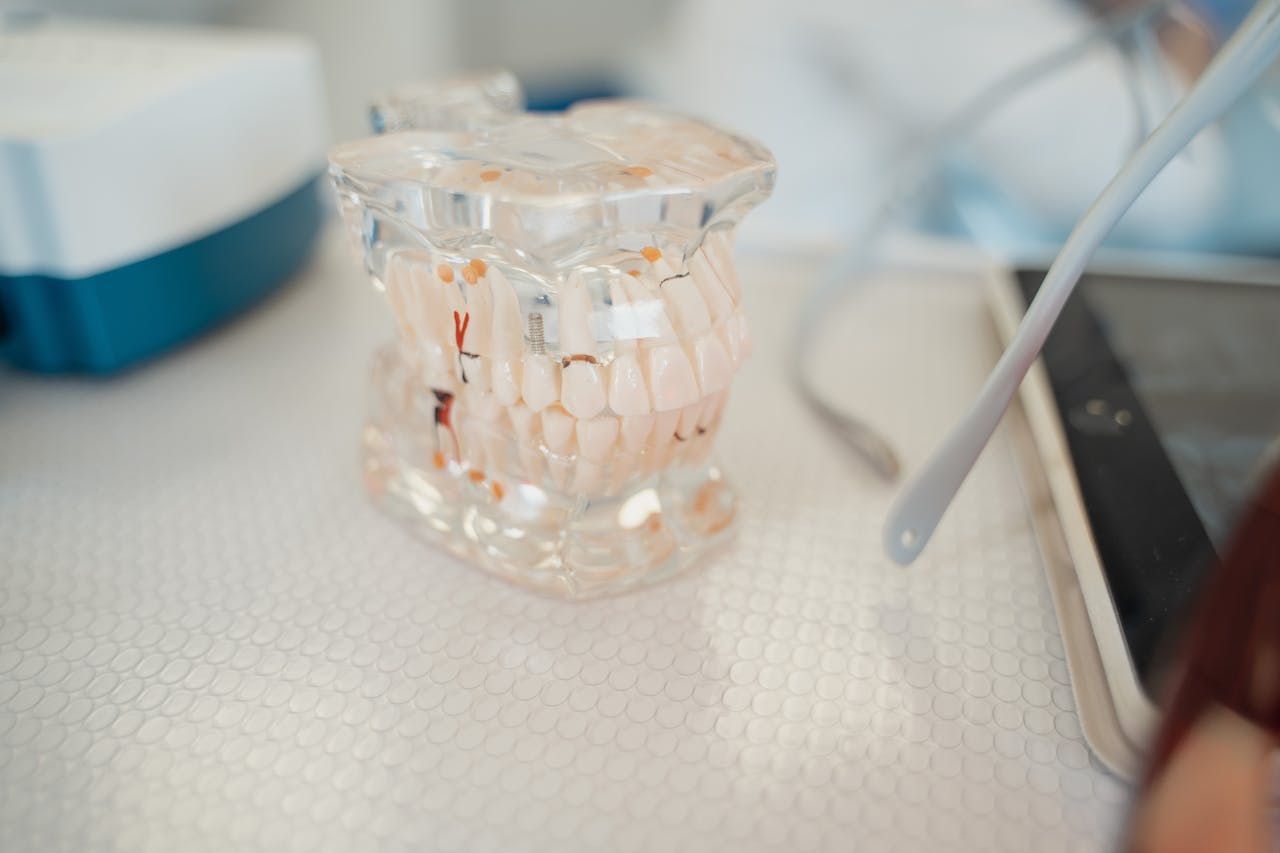Choosing the Best Dentures for a Comfortable Fit
Choosing the right dentures is essential for your comfort and oral health. With the variety of options available, finding dentures that fit well and feel comfortable can make a big difference in your daily life. Dentures are not just about replacing missing teeth; they also help maintain the structure of your mouth, making eating and talking easier. Understanding the different types of dentures and considering key factors in their fit can help you make a well-informed decision.
Many people worry that dentures will be uncomfortable or ill-fitting. However, advancements in dental technology have made dentures more comfortable and natural-looking than ever before. Properly fitted dentures can enhance your appearance and boost your confidence, while poor-fitting ones can cause discomfort and health issues. Taking the time to learn about the types of dentures and what affects their fit can help ensure you get the best possible outcome.
Caring for your dentures is equally important. Just like natural teeth, dentures need regular maintenance to stay in good shape and remain comfortable. In this article, we'll guide you through the different types of dentures, important factors to consider for a comfortable fit, tips for caring for your dentures, and when to consult your dentist about adjustments. This information will help you choose the best dentures for a comfortable and confident smile.
Understanding Different Types of Dentures
When choosing dentures, it's important to know the different types available. Here are the common types:
1. Complete Dentures: These are used when all teeth are missing. They rest directly on the gums and are typically made of acrylic. Complete dentures can be further categorized into:
- Conventional Dentures: These are made after the teeth have been removed and the gums have healed.
- Immediate Dentures: These are placed right after the teeth are removed, so you don’t have to be without teeth during the healing period. However, they might need adjustments as the gums heal and shrink.
2. Partial Dentures: These are used when some natural teeth remain. A partial denture fills in the gaps with replacement teeth attached to a base that matches your gums. They usually have metal clasps that attach to your natural teeth, keeping the denture in place.
3. Implant-Supported Dentures: These dentures are anchored by dental implants in the jawbone, offering more stability. They can be either complete or partial dentures. Implant-supported dentures feel more secure, which can make eating and speaking easier.
4. Flexible Dentures: Made from a softer material, flexible dentures are more comfortable and better suited for people with sensitive gums. They often don’t require metal clasps and can blend more naturally with your gums and teeth.
Choosing between these types depends on your specific needs and preferences. Discussing your options with your dentist will help you understand which type suits your lifestyle and oral health best.
Key Factors for Ensuring a Comfortable Fit
Ensuring a comfortable fit for your dentures is crucial. Here are key factors to consider:
1. Proper Measurements: Accurate impressions of your gums and remaining teeth are essential. Your dentist will take detailed measurements and molds of your mouth to create dentures tailored to your unique shape. This ensures a snug fit that minimizes slipping and discomfort.
2. Material Choice: The material used for your dentures impacts comfort. Acrylic is common for complete dentures, while partials might use metal for the framework. Flexible materials can offer added comfort for sensitive gums. Discussing materials with your dentist helps find the best option for you.
3. Jaw Alignment: Proper jaw alignment is vital for comfortable dentures. Your dentist will check how your top and bottom teeth come together (your bite). This helps prevent issues like sore spots, clicking sounds, or difficulties in chewing. If your bite is off, your dentist can make adjustments.
4. Follow-Up Adjustments: Even with precise measurements, you might need adjustments after getting your new dentures. Your gums and bones can change, especially soon after tooth removal, leading to shifts in how your dentures fit. Regular follow-ups with your dentist ensure any issues are addressed promptly, maintaining comfort.
5. Practice and Patience: Getting used to new dentures takes time. Initially, you might feel pressure or minor irritation. Eating and speaking with dentures might require practice. Starting with soft foods and gradually moving to firmer ones can help. Patience and regular dental visits play a significant role in adapting to your new dentures comfortably.
Considering these factors ensures your dentures fit well, offering a comfortable and natural-feeling experience.
How to Care for Your Dentures to Maintain Comfort
Taking care of your dentures is essential to keep them comfortable and long-lasting. Proper care not only helps maintain the fit but also ensures your mouth stays healthy. Here are some key tips for caring for your dentures:
1. Daily Cleaning: Clean your dentures every day to remove food particles and plaque. Use a soft-bristled toothbrush and a non-abrasive denture cleaner. Avoid regular toothpaste, which can be too abrasive and cause scratches.
2. Soaking Overnight: Dentures need to stay moist to maintain their shape. Soak them in water or a mild denture solution overnight. This also helps remove any leftover debris and keeps them fresh.
3. Handling with Care: Handle your dentures carefully to avoid dropping them. When cleaning, place a towel in the sink or fill it with water to cushion the fall if they slip from your hands.
4. Rinsing After Meals: Rinse your dentures with water after eating to remove any food particles. This helps prevent stains and keeps your mouth clean.
5. Regular Check-Ups: Visit your dentist regularly for check-ups and professional cleanings. Your dentist can check for any signs of damage or wear and ensure your dentures fit properly.
6. Avoid Hot Water: Do not use hot water to clean or soak your dentures, as it can cause them to warp.
Following these care tips helps keep your dentures comfortable and looking their best. Consistent maintenance and regular dental visits play a significant role in the longevity and comfort of your dentures.
When to Consult Your Dentist About Denture Fit
Even with proper care, you may need to consult your dentist about the fit of your dentures. Here are some signs that it's time to see your dentist:
1. Discomfort or Sores: If you experience persistent discomfort or develop sores in your mouth, it might be a sign that your dentures need adjustment. It’s important not to ignore these issues, as they can lead to infections.
2. Difficulty Eating and Speaking: Struggling to eat or speak clearly can indicate that your dentures don’t fit properly. Your dentist can make adjustments to improve the fit and function.
3. Slipping or Clicking: If your dentures constantly slip out of place or make clicking noises when you talk, they likely need some adjustments. A proper fit prevents these issues and makes wearing dentures more comfortable.
4. Dentures Feel Loose: Over time, changes in your gums and jaw can affect how your dentures fit. If your dentures feel loose, it’s time to have them checked by your dentist. They may need to be relined or replaced for a better fit.
5. Visible Damage: Check your dentures for any visible cracks, chips, or other damage. Broken dentures can cause discomfort and should be repaired or replaced by your dentist.
Consulting your dentist at the first sign of issues ensures your dentures remain comfortable and functional. Regular visits help catch problems early and keep your oral health in top condition.
Conclusion
Choosing the right dentures involves understanding the different types available, critical factors that ensure a comfortable fit, and how to care for them properly. Properly fitted dentures can significantly enhance your quality of life, making everyday activities like eating and speaking much easier. It’s also important to recognize when adjustments are necessary to maintain their comfort and functionality.
Regular dental visits play a key role in maintaining the health and fit of your dentures. If you experience any discomfort, difficulty, or changes in how your dentures fit, don’t hesitate to consult your dentist. They can provide solutions and adjustments to ensure your dentures remain as comfortable and effective as possible.
Are you ready to find the perfect dentures for a comfortable fit? Contact Dimmitt Dental to learn more about our
dentures and dental services and schedule your consultation. Get started on improving your smile and quality of life today!
HOURS
- Monday
- Closed
- Tuesday
- - -
- Wed - Thu
- - -
- Friday
- - -
- Sat - Sun
- Closed
All Rights Reserved | Dentist Websites by Energize Group




